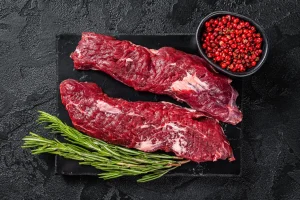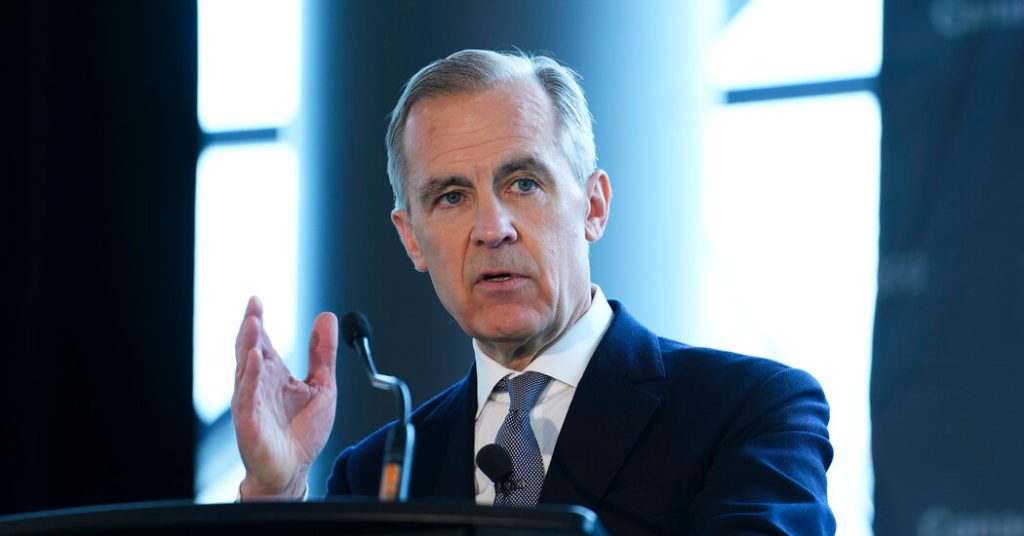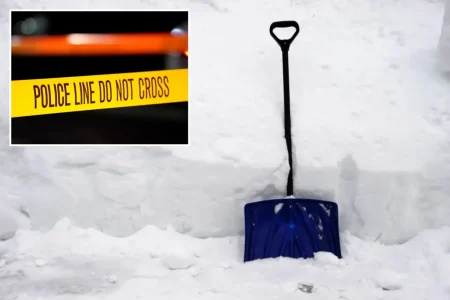Mark Carney, a figure synonymous with global finance and green investment advocacy, has officially shifted gears into the political arena, announcing his candidacy for leadership of Canada’s Liberal Party. If elected, the former Bank of Canada and Bank of England governor could potentially become Canada’s prime minister, steering the country through a litany of challenges and inheriting a politically tumultuous legacy from outgoing Prime Minister Justin Trudeau. Let’s dive into the unfolding story while drawing out the key nuances behind Carney’s ambitious leap from the global financial sector into Canadian politics.
### Stepping Into the Spotlight
Carney, 59, launched his candidacy in Edmonton, a place laced with personal meaning as the city in which he grew up. “I’m here to ask for your support,” he declared, emphasizing his intention to earn the trust of Canadians during these uncertain times. He acknowledged the stark contrast between Canada’s prosperous past and the tougher realities of the present, saying, “Those good old times, my friends, are over. Our times are anything but ordinary.”
The timing of Carney’s move could be pivotal. Canadian politics is in a state of flux, largely due to Trudeau’s decision to step down after nearly a decade in office. Since his early days as a globally admired leader, Trudeau’s public image has steadily faded amid numerous domestic challenges — from skyrocketing housing costs and a strained healthcare system to rising prices for everyday necessities. Understandably, Carney’s path isn’t without hurdles, as voters will need convincing that he offers something dramatically different from Trudeau’s leadership, despite his prior informal economic advisory role during the pandemic.
### Trudeau’s Legacy: A Double-Edged Sword
Stepping into Trudeau’s shoes comes with its own set of complications. The Liberal Party’s standing has eroded, trailing the opposition Conservatives by a daunting 25 percentage points in recent polls. Disenchantment with the party has left it fractured and vulnerable, necessitating not just a new leader but also a fully reinvigorated direction.
For Carney, differentiating himself from Trudeau is paramount—a point underscored by his repeated emphasis that he’s an “outsider.” That narrative seeks to shield him from being lumped in as merely an extension of Trudeau-era governance, which Carney must take care to distance himself from if he is to bridge reconnections with Canadians. Some skepticism already looms, however, as Conservatives have been quick to label him “the ultimate Liberal insider,” weaponizing images of Carney alongside Trudeau as rhetorical ammunition.
### Credentials on the Global Stage
Carney brings to politics a heavyweight résumé shaped by prominent roles in international finance. He was governor of the Bank of Canada through the 2008 financial crisis, steering the country’s economy through some of its toughest decisions. Later, he transitioned to the Bank of England, where he gained recognition not only for his economic policies but also for highlighting the risks of climate change to global markets—an unconventional stance for a central banker.
His expertise could position him as the antidote to Canada’s current economic malaise. He operates with a confident command of the macroeconomic threats and opportunities Canada faces, not least in light of unpredictable U.S.-Canada trade tensions under Donald Trump-like policies potentially reemerging south of the border.
However, as capable as Carney is on the global stage, his new challenge lies in navigating the often murky waters of domestic Canadian politics. With no previous experience running for elected office, he’ll grapple with perceptions that he may be an aloof technocrat, out of tune with the daily struggles of ordinary Canadians. Early efforts to project a more relatable image include a playful, lighthearted appearance on “The Daily Show” with Jon Stewart, where he engaged in banter and humor. But whether these kinds of moments successfully recast him as accessible remains to be seen.
### Domestic and International Challenges Ahead
If he wins leadership of the Liberal Party, Carney’s overarching challenge will be to steer Canada against an increasingly complex backdrop of international relations and domestic strain. The nation’s fraught relationship with the United States resurfaces frequently. From discussions of tariffs to Canada’s broader economic dependence on its southern neighbor, Carney’s acumen in navigating such trade conflicts could be invaluable. Humorously but pointedly addressing the tension during his “The Daily Show” appearance, Carney asserted, “We’re not moving in with you,” while adding, “We can be friends. Friends with benefits.”
Beyond global affairs, Carney understands that he has to tackle pressing issues within Canada. Affordable housing, accessible healthcare, and the spiraling cost of living dominate voters’ concerns, and he will need concrete plans to address them. These are among the precise flashpoints that marginalized Liberal support during Trudeau’s tenure, underscoring the need for a reimagined strategy.
### A Potential Challenger on the Horizon
While Carney appears ready to harness his financial background as a tool of persuasion, the road ahead could involve some formidable competition, not least from Chrystia Freeland, the former deputy prime minister who recently stepped down and criticized Trudeau’s leadership. Freeland’s name recognition and political experience already give her an advantage in many ways; polls show that over half of Canadians can identify her, compared to just 24 percent for Carney.
Despite their camaraderie—Freeland and Carney share deep ties as Harvard and Oxford alumni, and Carney is even the godfather to one of Freeland’s children—such a contest could be divisive. Freeland represents a competing vision rooted in greater familiarity with the inner workings of Trudeau’s government. However, Carney might argue that his outsider credentials and globally informed approach present a cleaner break from the past, offering the fresh leadership that many voters appear to crave.
### A Rebuilding Liberal Party
Whoever takes up the leadership mantle will inherit a Liberal Party in need of reconstructive care. Efforts to secure the legitimacy of the race have already tightened election rules, barring non-citizens from voting—a move designed to thwart foreign interference. Young Canadians, aged 14 and up, can now participate, injecting a sense of renewal into the party’s democratic processes.
Meanwhile, candidates face more challenges beyond public perception, including logistical and financial hurdles. The race requires aspirants to raise $350,000 Canadian dollars (about $245,000)—indicative of the considerable responsibility and preparation expected for this high-stakes role.
### Whispers of Optimism
Despite Carney’s lack of direct political experience, his campaign strategy thus far represents a calculated blend of self-assuredness and humility. His credentials, after all, offer undeniable appeal. Few can match his depth of experience in managing complex financial systems or foreseeing market trends, especially when those challenges increasingly intersect with issues like climate change, housing, and healthcare. But his biggest test will likely be navigating the balance between offering big-picture solutions and connecting with voters at a personal level.
Mark Carney’s announcement marks the arrival of a potential era-defining figure in Canadian politics. A respected luminary in economics yet an untested leader in public office, Carney is banking on his ability to reset perceptions, capitalize on his unique expertise, and inspire confidence in Canadians grappling with both domestic troubles and a fraught global environment. While the Liberals’ current woes set the stage for an uphill struggle, Carney’s candidacy offers a glimpse into how the party might rebuild—and perhaps redefine—its legacy. Whether voters embrace his pitch remains to be seen, but in a time of change and uncertainty, Canada seems poised for a leadership narrative unlike any in its recent history.








